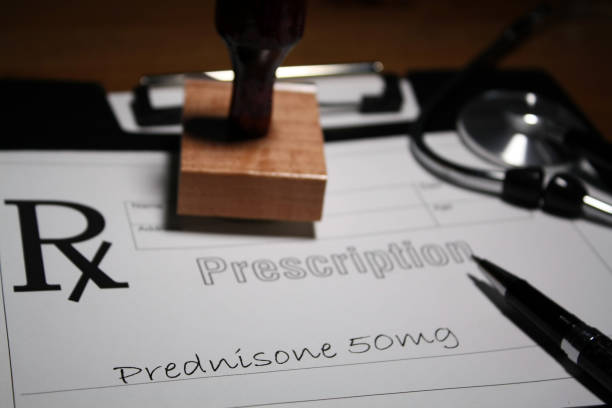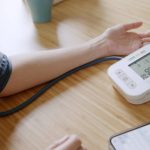The ONE organ responsible for high blood pressure.
Does Prednisone Raise Blood Pressure?

Prednisone is a commonly used medication to help reduce inflammation, relieve pain, and reduce discomfort. It is part of a group of medications called corticosteroids, which are also referred to as steroids, and is a synthetic version of the corticosteroids that are naturally produced in the body.
It is commonly used to manage symptoms of inflammatory diseases such as:
- Arthritis
- Multiple sclerosis
- Severe allergic reactions
- Lupus
- Asthma
- Chronic obstructive pulmonary disease (COPD)
- Other autoimmune diseases
Other uses for prednisone include the management and relief of the symptoms of other conditions, such as an acute respiratory infection by helping to reduce inflammation in the airway, making it easier to breathe.
Prednisone and Blood Pressure
A reported side effect of prednisone is increased blood pressure. Two reasons prednisone can increase blood pressure is the drug’s impact on fluid balance and weight.
When taking prednisone, the body holds on to sodium and loses potassium. This change in electrolyte balance causes:
- Fluid retention
- Weight gain
- Bloating
When you are retaining water, it increases the total volume of fluid that is being pushed through your blood vessels by your heart and this can cause increases in your blood pressure.
Another way that prednisone can increase blood pressure is weight gain. Corticosteroids increase your appetite and changes your body’s response to both insulin and sugar. An increased appetite leads to excess calorie intake and as a result weight gain.
Research has shown that people who are obese have a five times higher risk of developing high blood pressure. Studies have also found that a weight loss of just 10%, for those who are overweight or obese, significantly lowered their risk of developing high blood pressure.2
Warning Signs
Uncontrolled high blood pressure can have very serious health effects.3 Learning the signs of high blood pressure can help you to reduce your risk for some of these severe complications.
Common symptoms of high blood pressure include:
- Dizziness
- Nervousness
- Sweating
- Trouble sleeping
- Blind spots in eyes
Symptoms of severe high blood pressure or a hypertensive emergency include:
- Severe headaches
- Nosebleed
- Fatigue or confusion
- Changes in vision
- Chest pain
- Difficulty breathing
- Changes in heart rate and irregular heartbeat
- Blood in urine
When to Call Your Healthcare Provider
Preventing High Blood Pressure
If you are already taking blood pressure medications when you began taking prednisone, your healthcare provider may adjust these medications. They may just recommend monitoring your blood pressure to assess how your body is responding to prednisone.
If you develop high blood pressure while taking prednisone, your healthcare provider may recommend starting blood pressure medication to help.
Lifestyle changes can be implemented to help prevent high blood pressure. Eating a balanced diet of fruits, vegetables, whole grains, and healthy fats can help with maintaining a health weight.
It also helps to limit the total amount of salt in your diet. It is recommended to limit your salt intake 2 grams or 2000 milligrams sodium per day. This includes the sodium that naturally occurs in food, salt added during processing, and any salt you add to your foods.
Try these tips to help reduce your overall salt intake:
- Keep saltshakers off of the table and avoid adding salt after you're done cooking.
- Cook with other herbs and spices that don't have salt added to them, such as black pepper, oregano, cumin, onion powder, garlic powder, and any spice blend without sodium.
- When purchasing canned or processed foods, choose those labeled low sodium or no salt added.
- Read the label to see how many milligrams of sodium it has per serving and the serving size.
- Rinse can foods to help remove a lot of the extra salt that is added during processes to help preserve the food.
Prednisone and Low Blood Pressure
- Dizziness or feeling lightheaded
- Nausea
- Fainting
- Poor concentration
- Cold, clammy feeling
- Blurred vision
Key Takeaways
If you are taking Prednisone to help with either an acute or chronic condition, it is important to know how this medication could affect your blood pressure. Uncontrolled high blood pressure can lead to the development of other chronic health conditions or severe health events like a heart attack or stroke
If you develop any of the signs or symptoms of high blood pressure you should contact your healthcare provider and seek medical attention.
Lifestyle changes can help to prevent the development of high blood pressure. Research supports weight loss and maintaining a healthy weight lowers the risk of developing high blood pressure.2 The amount of salt in the diet affects fluid balance. Try to limit salt intake or 2 grams (2,000 milligrams) per day.









